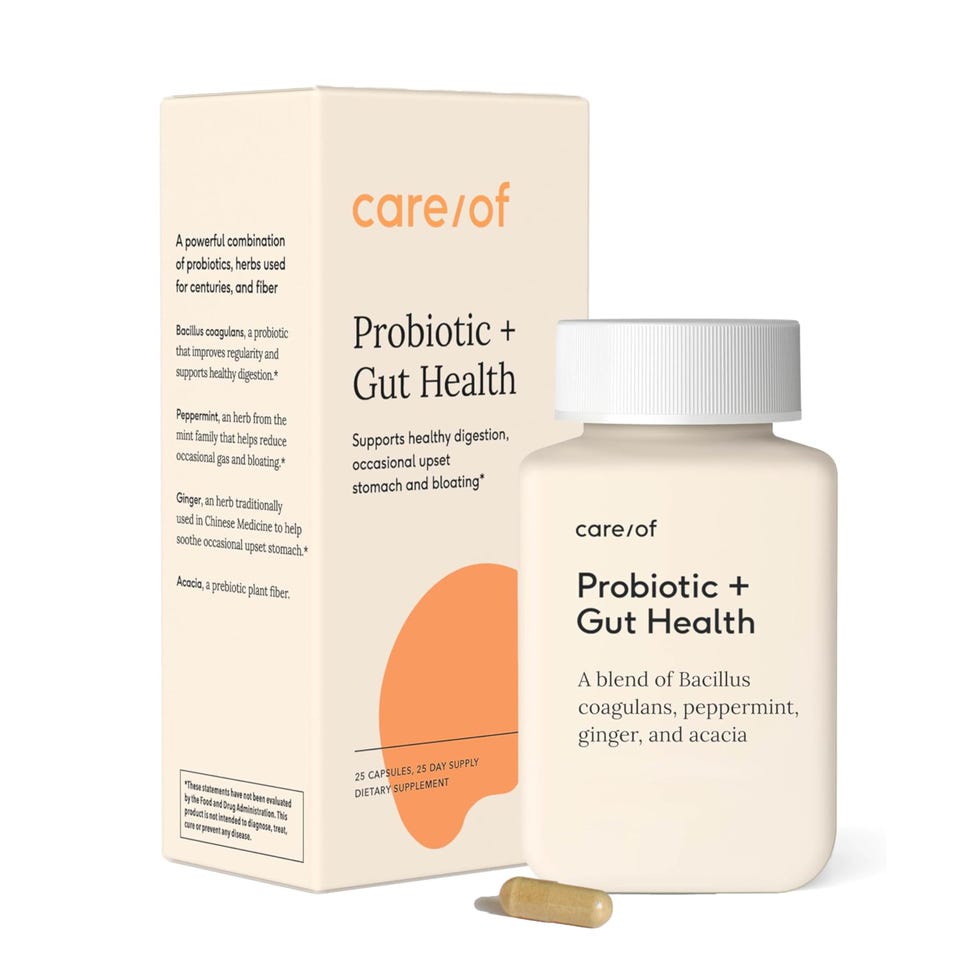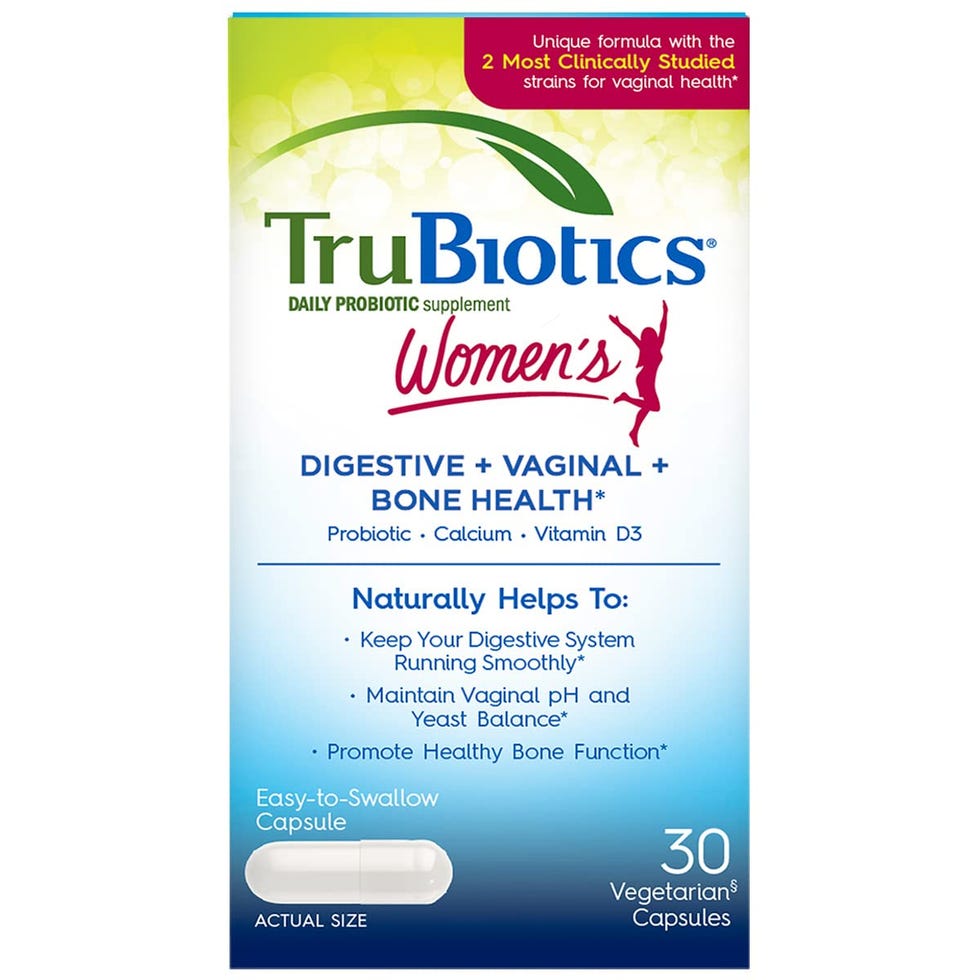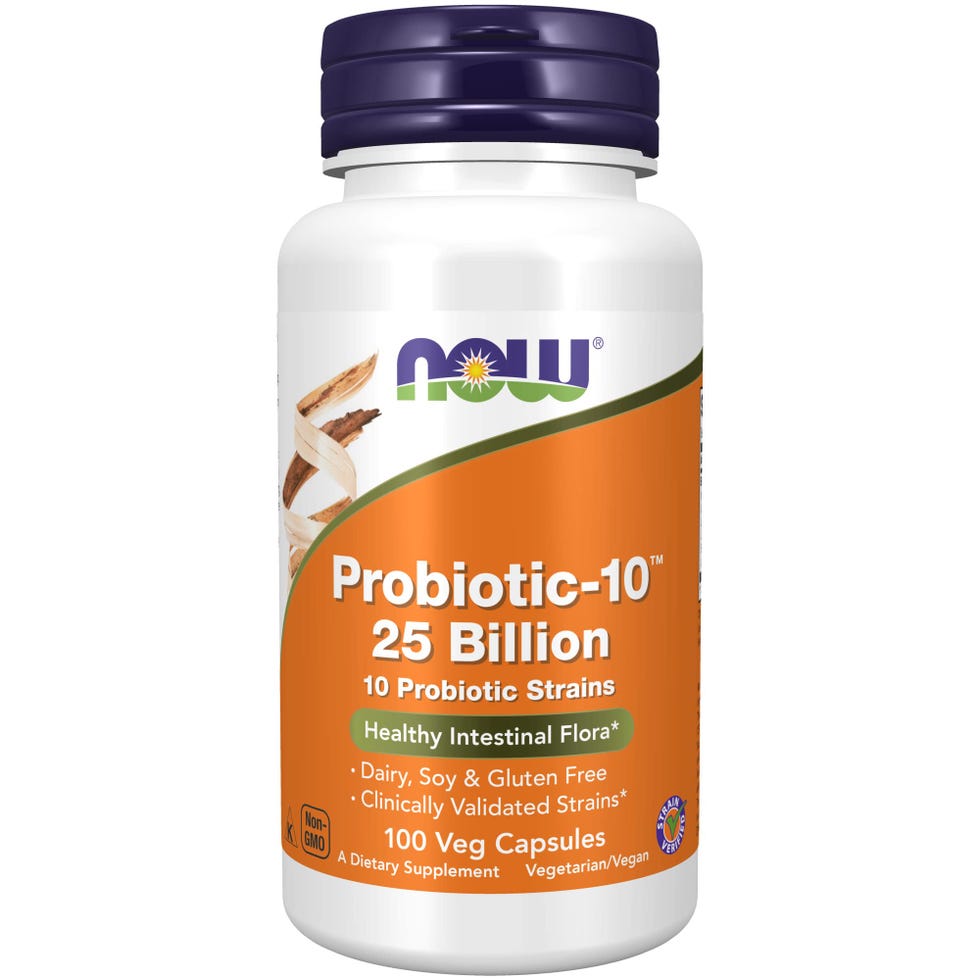There’s a lot to keep straight about probiotics. Depending on why you’re taking them, you’ll want to make sure you’re buying the right strain, for example. Another thing you’ll need to figure out? When to take probiotics.
If you’re eating a healthy diet, you’re kind of already taking probiotics all the time. But if your diet is lacking, or your doctor thinks you need a little extra help with rebalancing your gut microbiome or supporting digestion and immunity, probiotic supplements might be an option.
Before starting a new supp, it’s always important to consult your doc about which type works best for you and if they recommend a specific dosage to maximize the benefits. If you have the all-clear from your doctor to take a probiotic, read on for the best time to take them, how to know if they’re working, and recommendations for better gut health, according to experts.
Meet the experts: Patricia Raymond, MD, is a gastroenterology and internal medicine physician based in Virginia Beach, Virginia. Seifeldin Hakim, MD, is a gastroenterologist at Memorial Hermann Health System. Mia Syn, RDN, is a dietitian and author of Mostly Plant-Based. Tina Marinaccio, RD, is a dietitian at Health Dynamics LLC.
When is the best time to take probiotics?
Like so many questions about trendy supplements, the answer to this one isn’t necessarily black-and-white.
The first step is to check the label of your individual probiotic, which might have something to say on the matter. Some supplements you should take with meals and others on an empty stomach—which may impact the time of day you take them, for example.
As for what the science says? “There is no solid data about timing,” according to Seifeldin Hakim, MD, a gastroenterologist at Memorial Hermann Health System, which is why he also recommends checking the label.
Meanwhile, other experts, like gastroenterology and internal medicine physician Patricia Raymond, MD, recommend taking your supplement right before bed. “The gut is pretty inactive at night,” she says. So, if you ingest a probiotic at night when your bowel isn’t moving, there’s a better chance that it will hang around, divide, and potentially get integrated into your gut, she says.
At the end of the day, there is no universal best time for probiotic supplementation, so you will likely need to experiment and see what works best for you and your lifestyle.
How often should I take probiotics?
As a general rule, always check with your healthcare provider or follow the recommended amount and instructions on the probiotics product label, says Mia Syn, RDN, a dietitian and author of Mostly Plant-Based. That said, taking a daily supplement consistently at the same time each day might be your best bet for maximum results. “Like many dietary supplements, probiotics should be taken daily to reap the benefits, including digestive and immune support,” Syn says.
You can also benefit from adding more probiotic-rich foods to your diet, such as yogurt, kimchi, and sauerkraut. “Diet is the biggest determinant of how healthy your gut flora is, so start with food first [before supplementation],” says Tina Marinaccio, RD, a dietitian at Health Dynamics LLC. “Gut bacteria feed off of certain fibers, so including lots of high soluble fiber foods like oats and ground flax, and prebiotic foods like bananas and apples support a healthy gut flora.”
How long does it take for probiotics to work?
When the predominant symptom (say, constipation or stomach pain) you have improves or even resolves after consistently taking probiotics, it’s a pretty good bet that you’re getting your money’s worth—it just might not happen overnight.
“It takes a while for the microorganisms to build up in the body, so depending on what you’re trying to treat, it may take some time to tell if a probiotic is working for you,” says Marinaccio. This is why it’s important to take your probiotics consistently around the same time every day and note any differences in your gut health, whether that be less bloating or ease of constipation.
“Let’s say you took an antibiotic and suffered some gastrointestinal distress—it may take an additional one to two months of taking probiotics to normalize the flow of the GI tract,” says Marinaccio. In other words, if you’re experiencing discomfort, give the probiotics at least a few weeks (or potentially longer) to work their magic.
Can you take probiotics with antibiotics?
Again, it’s always a good idea to talk to your doctor about taking probiotics along with *any* medication, including antibiotics. Some research has found that taking a probiotic can help maintain gut microbiota diversity during a course of antibiotics, like one 2024 study in Frontiers. (And another 2021 meta-analysis in BMJ Open found that a probiotic can help treat diarrhea caused by the meds.)
If you are taking a probiotic during your antibiotic course, just make sure you leave a two-hour window between them, says Marinaccio. “It doesn’t matter which you take first, you just want the antibiotic to be able to do its job,” she says. And, “follow the prescription instructions regarding whether or not to take the antibiotic with food.”
The bottom line? Probiotics can be taken with other medications and supplements—just pay attention to how your body feels and consult your doctor if you have any unwanted side effects.
Best Probiotics For Gut Health

Averee Nelson is a New York City-wide freelance editor discussing in social media trends, pop culture, and lifestyle. She holds an M.S. from the Columbia Journalism School, and her words can be found in Women’s Health, The List, Her Campus, and more. When she’s not writing, you can find her tested out new recipes in her kitchen, eating the city, or reading (a lot).
Olivia Luppino is an editorial assistant at Women’s Health. She spends most of her time interviewing expert sources about the latest fitness trends, nutrition tips, and practical advice for living a healthier life. Olivia previously wrote for New York Magazine’s The Cut, PS (formerly POPSUGAR), and Salon, where she also did on-camera interviews with celebrity guests. She’s currently training for the New York City marathon.
Read the full article here










